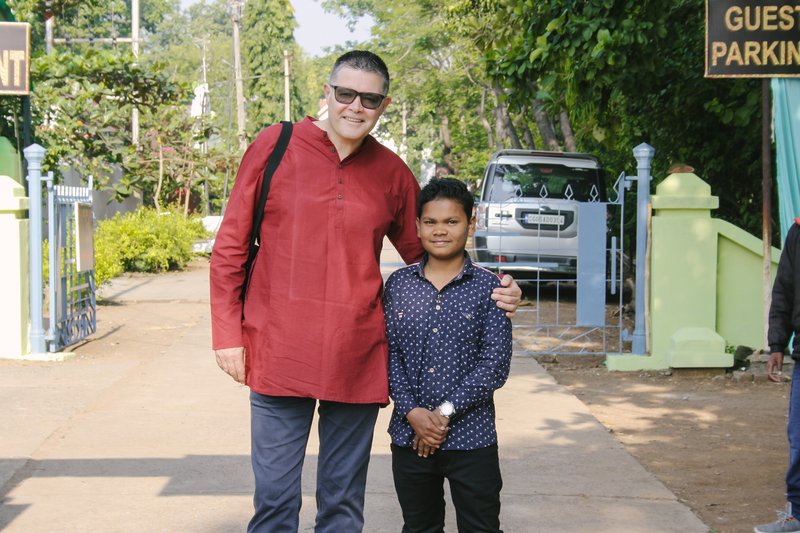‘As the world’s problems increase, the people we serve are ever more left behind’
Leprosy is one of the leading causes of avoidable disability globally. It is a blight on the world today that a curable disease continues to disable and destroy lives. As the UK Government publishes its first White Paper on international development in 14 years, Peter Waddup, Chief Executive, reflects on our collective responsibility.

Leprosy is one of 20 neglected tropical diseases. Diseases that needn't exist today, yet are left to disable the bodies of the world's poorest. Neglected tropical diseases (NTDs) affect 1.65 billion people globally. In fact if NTDs were a country, they would overtake China and India by a long way in being the world's most populous!
The year 2015 proved to be a time of great optimism in the development sector. The UN's 193 member countries adopted the 17 Sustainable Development Goals (SDGs). They pledged to end poverty, protect the planet and for everyone to enjoy peace and prosperity by 2030.
At The Leprosy Mission we were so excited by SDG's 'leave no-one behind' slogan. Lessons had been learnt! There was not a single mention of disability in the proceeding Millennium Development Goals. It seems utterly absurd in hindsight. (Yet at the time there were barbed jokes blaming access issues stopping people with disabilities from attending the meetings.)
The most exciting thing about the SDGs is that they specifically pledge to end NTDs! As NTDs affect the world's most marginalised, this is no mean feat. While the World Health Organization set a target to end leprosy transmission by 2030, this target is now but a pipedream.
Yet the sheer aspiration in 2015 was music to our ears. This was then matched by David Cameron's leadership on the world stage. The then Prime Minister enshrined in UK law a target to spend 0.7% of Gross National Income on Overseas Aid. This was putting money where your mouth is and the UK was leading the way!
On his return to politics, Lord Cameron has had to face that the UK's standing on global development has plummeted. The 0.7% aid target has been slashed to 0.5%. The SDGs he helped to secure have ricocheted down the Government's agenda.
As now Secretary of State for Foreign, Commonwealth and Development Affairs, Lord Cameron introduces the Government's White Paper on International Development. There are many approaches to welcome. These include working in closer partnership with communities on the ground, a model we aspire to here at The Leprosy Mission.
Yet the main goal of the White Paper is to scale up the efforts to achieve the SDGs. At the half-way point, the SDGs are grossly off-track with only 15% of the SDG indicators likely to be met. The Covid pandemic has significantly set back development progress. As has Russia's illegal invasion of Ukraine for increasing energy and food insecurity globally.
In a struggling and volatile world, the SDGs are more important than ever. The number of leprosy cases diagnosed each year is still down on pre-pandemic levels. Global health systems are creaking under immense pressure and as ever, it is the poorest and the most marginalised feeling the pain the most.
Despite my colleagues tirelessly running pop-up health clinics in remote communities, the numbers of new leprosy cases are still down from 2019. We know this is not because there is less leprosy. Quite the opposite. World Health Organization statistics show an increase in the number of people diagnosed with leprosy who already have a disability.
This shows the desperate need for governments and charities like ours to find these precious people who need healthcare. Sadly, as the world's problems increase, the people we serve are ever more left behind.